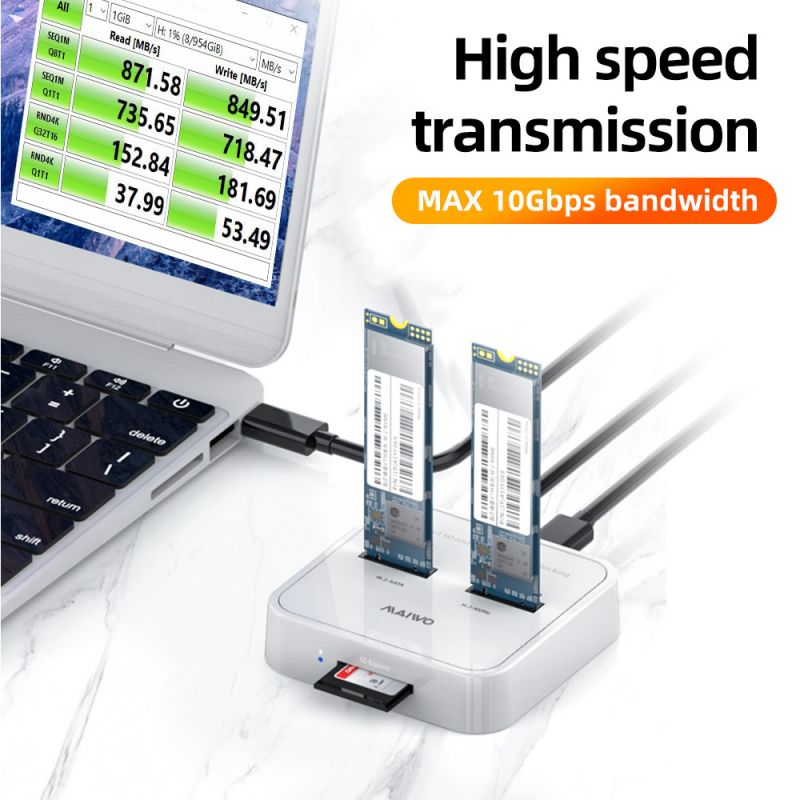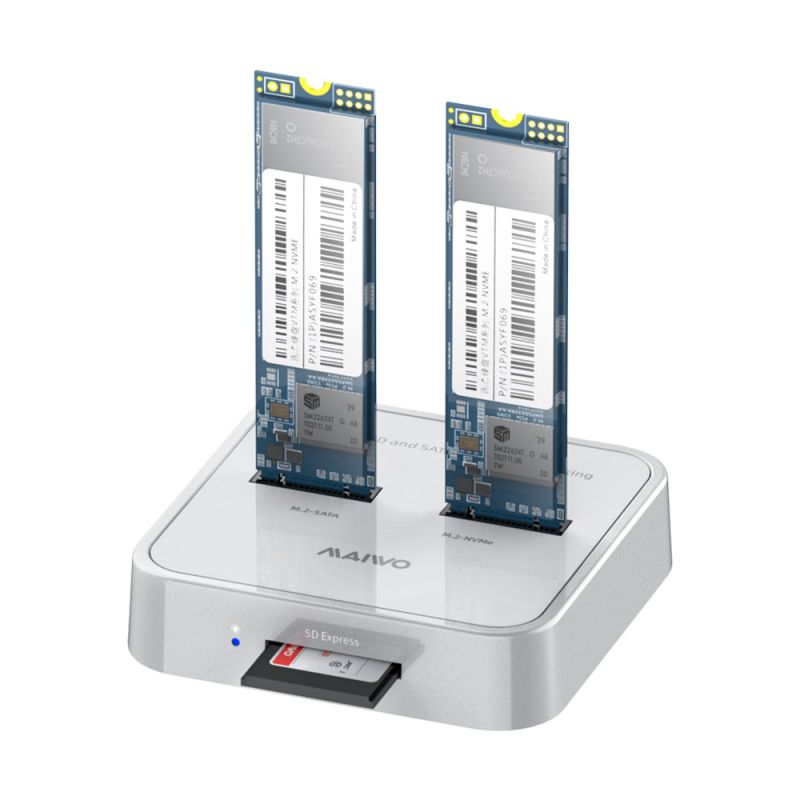M.2 SSD duplicators have become popular tools for copying and cloning solid-state drives (SSDs) due to their efficiency and convenience. However, many users wonder if these duplicators support the newer NVMe (Non-Volatile Memory Express) drives, which offer even faster speeds and better performance. In this article, we will explore whether M.2 SSD duplicators are compatible with NVMe drives and discuss the advantages and limitations of using them together.
NVMe (Non-Volatile Memory Express) is a communication protocol designed specifically for accessing SSDs over PCIe (Peripheral Component Interconnect Express). NVMe drives provide significant advantages over their SATA (Serial ATA) counterparts, including faster read/write speeds, reduced latency, and improved power efficiency. These drives are commonly used in high-end laptops, gaming PCs, and enterprise-grade servers.
M.2 SSD duplicators are specialized devices used to clone or duplicate M.2 SSDs. These duplicators typically support SATA-based M.2 SSDs, making them compatible with a wide range of consumer-grade SSDs available on the market. They are especially useful for IT professionals, system integrators, and technicians who need to replicate the contents of SSDs quickly and efficiently.


While M.2 SSD duplicators primarily support SATA-based M.2 SSDs, some models also offer compatibility with NVMe drives. However, it is essential to check the specifications and features of the duplicator before purchase to ensure NVMe support. The product descriptions or user manuals should clearly state whether NVMe drives are supported.
If a compatible M.2 SSD duplicator supports NVMe drives, there are several advantages to combine these technologies:
Future-Proofing: NVMe technology is rapidly becoming the standard for SSDs. By investing in an NVMe-compatible M.2 SSD duplicator, users can ensure their equipment remains compatible with the latest advancements in storage technology.
While using NVMe drives with M.2 SSD duplicators offers advantages, there are a few limitations and considerations to keep in mind:
Duplication Speed: Although NVMe drives offer faster speeds, the actual duplication speed will depend on the duplicator's capabilities and the system's overall performance.
In conclusion, while not all M.2 SSD duplicators support NVMe drives, there are certain models available that offer compatibility. Users interested in using NVMe drives with duplicators should carefully research and select a duplicator that explicitly supports NVMe technology. When used together, NVMe drives and M.2 SSD duplicators can significantly enhance data duplication and cloning processes, ensuring faster and more efficient transfers. However, it is crucial to consider the limitations and ensure compatibility to make the most of this combination.